The current situation of arts, society and networks in the Mekong region
From MCH: MCH kicked off its Regional Representatives of the second cohort (REPs 2021-22) on March 28-29th by the Annual Meeting joined by 12 REPs from 5 Mekong regional countries (Cambodia, Laos, Myanmar, Thailand, and Vietnam) and Taiwan.
The workshop was the first activity to help the REPs to get to know more about MCH, about each other and to set the foundations for our work together during the 2 years. The REPs were invited to join a ‘World Café’ discussion in which they were grouped into three small groups staying at each table discussing a specific topic for a fixed time, and then move to a new table.
On the first table discussing the topic of “What role(s) is arts playing in society in the Mekong Region”, many REPs shared their view of Arts as a counterpoint to the idea of homogenization, a key for each individual and communities to hold on to their own essential values. In the time of globalization, to resist the influence of big cultural waves from Western countries, China, Japan, Korea, each government encourages everybody to see themself the same and have one unique culture. Arts is there to remind us that we are all different from each other. Many people mentioned the big roles of the arts as the tool for propaganda, for advocacy, education and awareness raising. Regarding the idea of contemporary art should engage with social issues more than traditional forms of art, this puts a lot of pressure on the young artist because it requires their work to address the essential issues of the society and sometimes make them become dependent on social issues. Sometimes the roles that the arts are believed to have are not necessarily the roles that the artists want to play and to express with their art. Some REPs brought to the table the idea of arts could also play some simple but very meaningful roles in society that is to tell stories. It doesn’t have to be on a big scale for art to become meaningful. Just some small action of somebody having their voice heard and their stories told or something reflected in a very small community can become very valuable. The concerns about how to balance artist’s surviving and arts being used tool for other things in the society, sense of pressure for art to make change in the society in a big scale, to what extent that it is really possible and necessary, and coming back to the essential questions to what art can do would become interesting topics for REPs to work together.
On the second table discussing the question “What are the best ways to open up networks to be more inclusive and create more opportunities within our region“, everyone came to agree with a starting point that knowing each other is the key road. Considering and being aware of the differences of each other (cultures, practices, ages, etc) as well as common shares (similar interests, similar practices, etc) are important and the basic things for opening up different kinds of network. And to make it sustainable, only visiting a place to observe things going on would be not enough. It should involve activities that engage people to do things together, really exchange and act together. There are many ideas to create a different kind of platform whether online or onsite to welcome different people from different practices to facilitate a deeper exchange by trying to know and work with each other were brought to the table. A lot of actions come from there when people meet up, spending time, and trying to understand each together. It really depends on many aspects, such as individual preferences (some are more comfortable to have one-to-one time, some prefer collective experiences) and resources (space, time, for people to be together, the mobility which enables them to travel and stay in different places, meet different people to conduct real work together) that make building networks really take time.
The third table discussed “How do interconnections between the six MCH countries, from political to grassroots level, affect the work that happens in arts and culture fields?” The participating REPs picked up a lot of differences approaches, found differences and similarities among their countries and their practices. The interconnection of the six MCH countries can be seen from both historical and cultural point of view, in which all countries share many common historical and cultural heritage, languages, colonial history…; to present issues: environmental, damps along the Mekong region, the lack of government support for contemporary art practice, etc. These links among nations potentially bring art and cultural practitioners together in collaborative projects and activities in order to face the past and advocate and find solutions to contemporary issues.
A special section during three day workshop hosted by two guest speakers: artist and curator Trần Lương and curator Lê Thuận Uyên from Vietnam also prepared them to for the first assignment in their news role as MCH REPs: to take part in MCH Meeting Point 2021.
Let’s follow our REPs 2021-22 activities to explore their exciting contribution in building bridges between different arts communities in the Mekong region and beyond through people-to-people connections.
Meet MCH REPs 2022-22
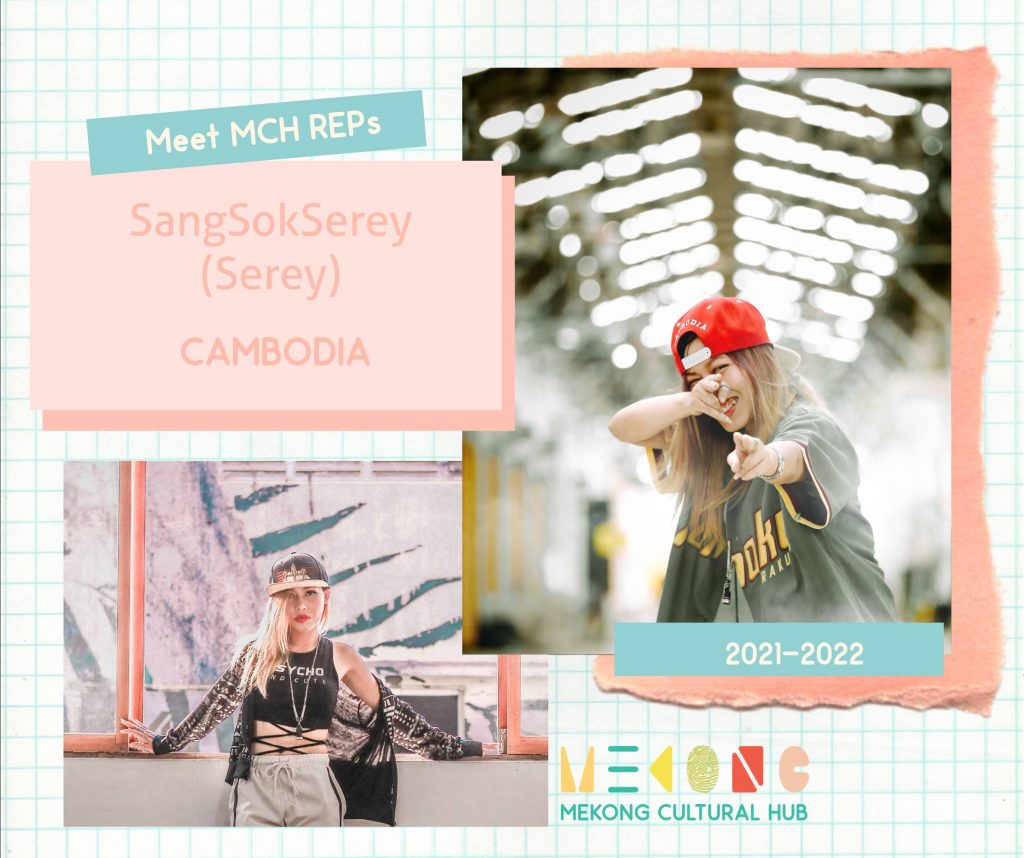
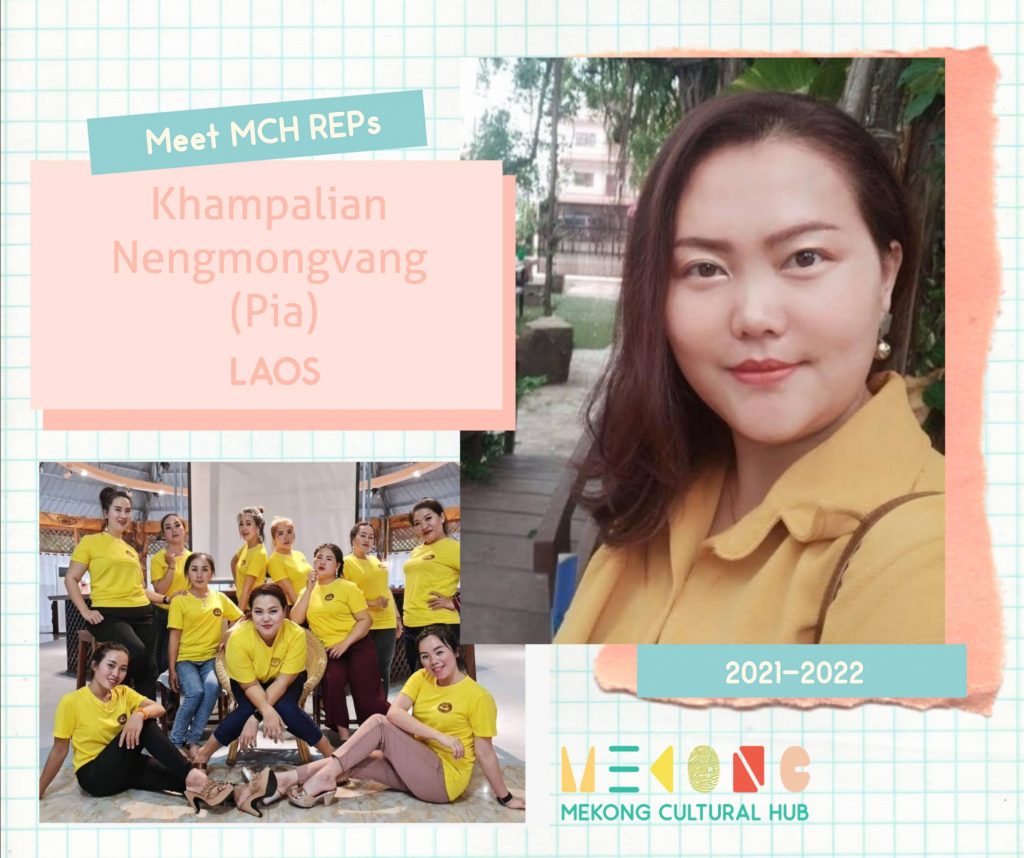
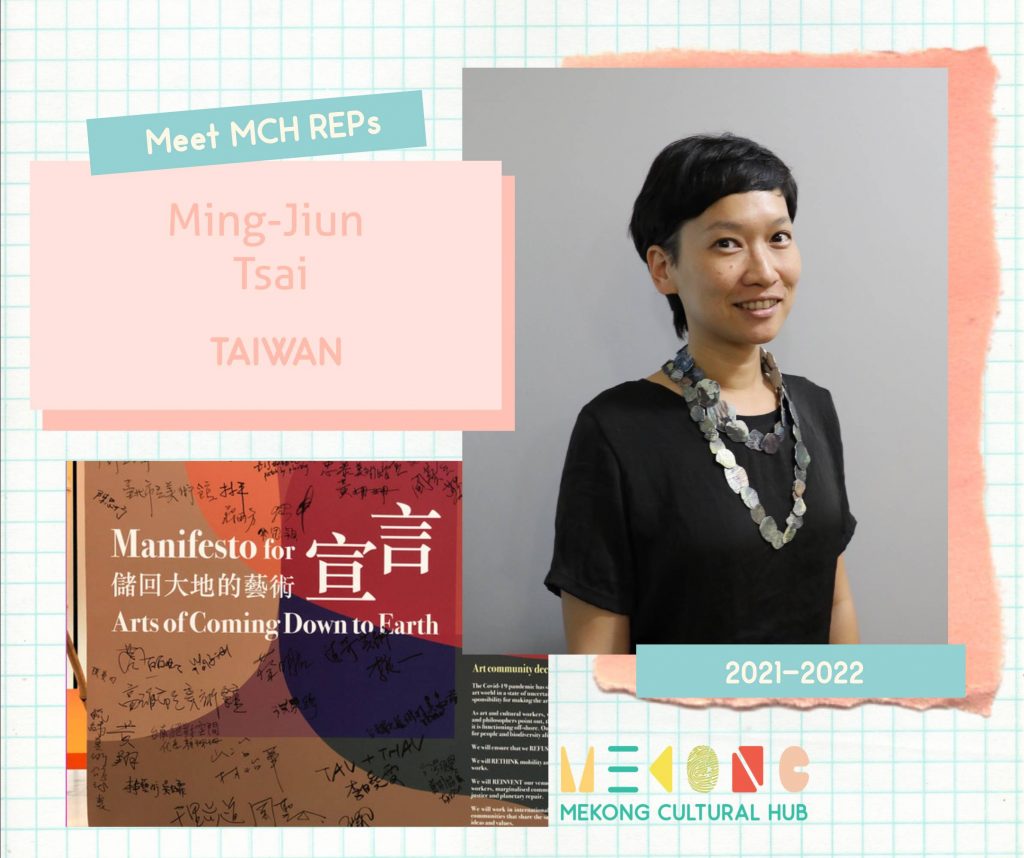
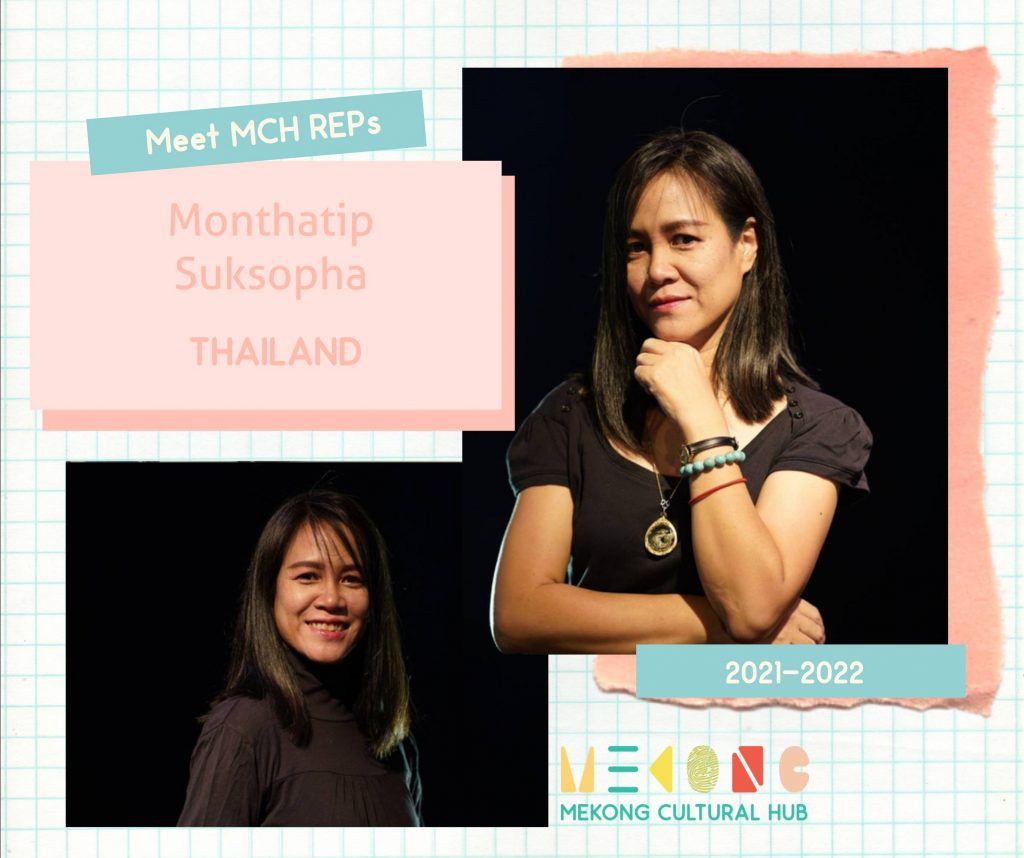
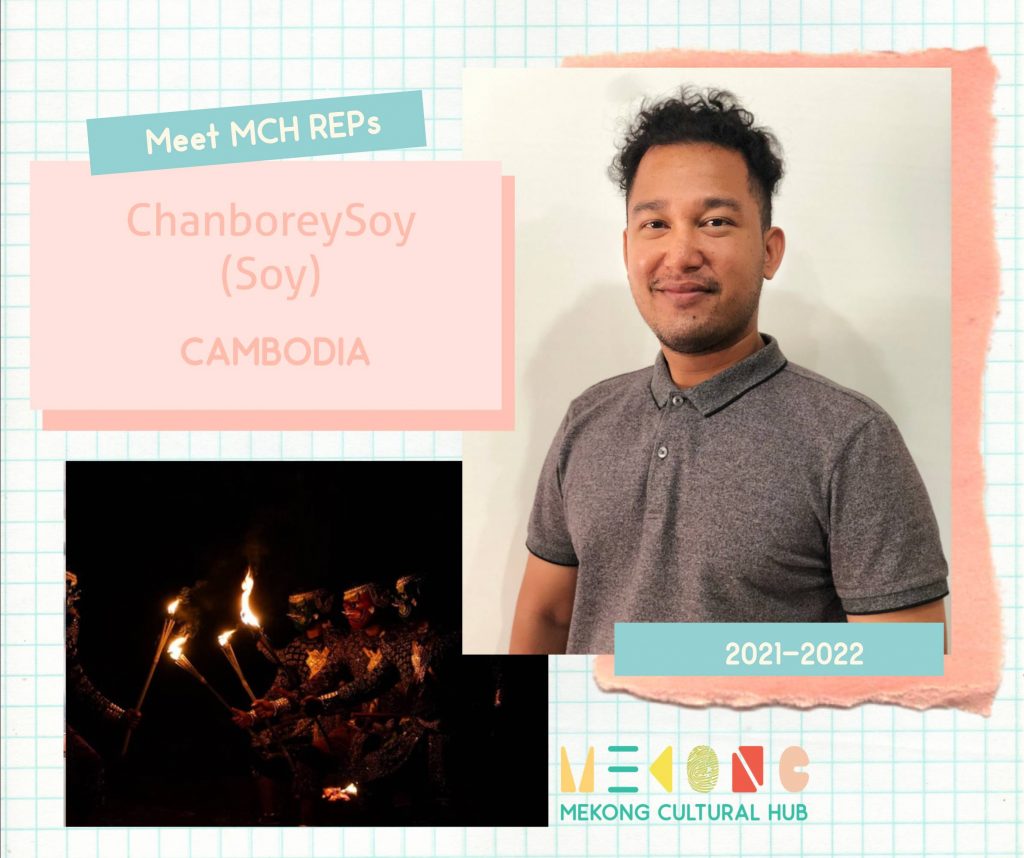
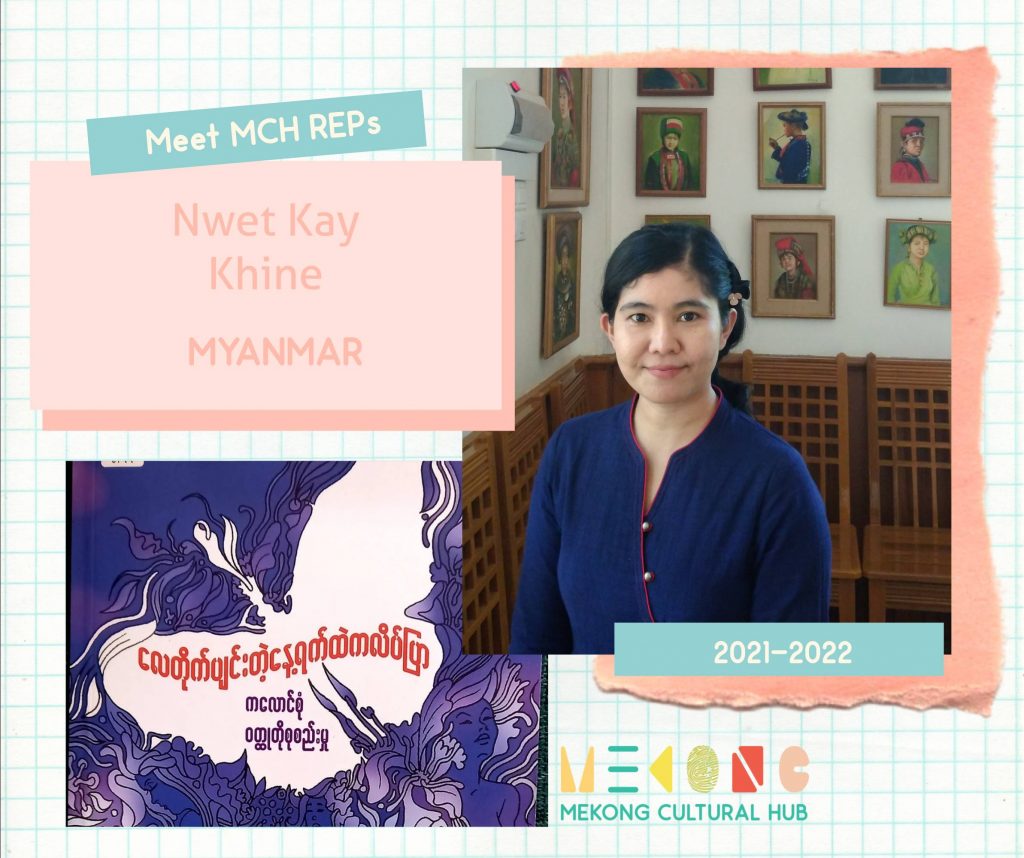
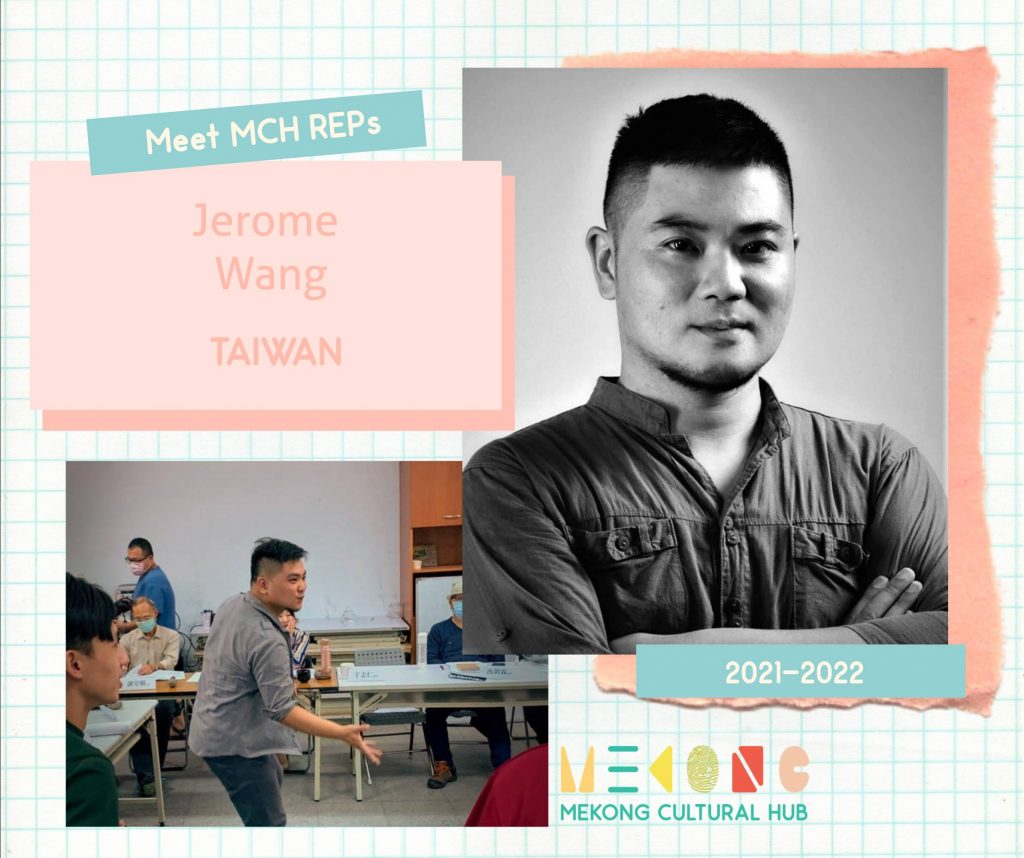
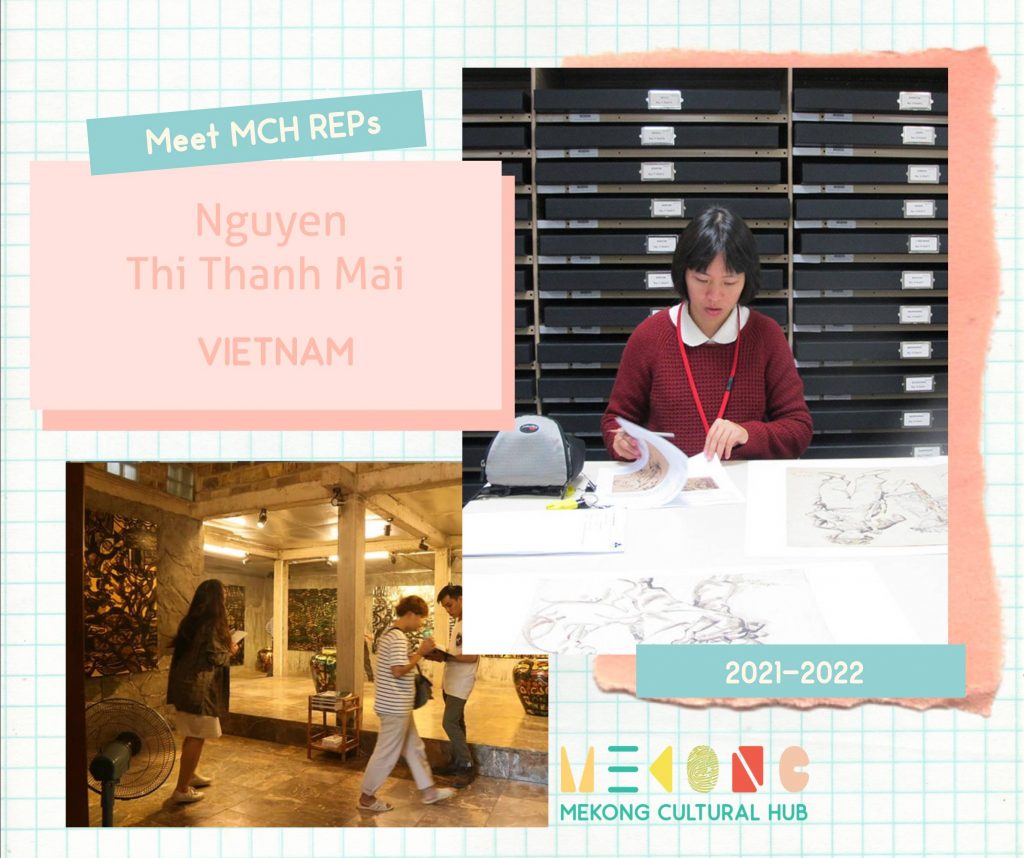
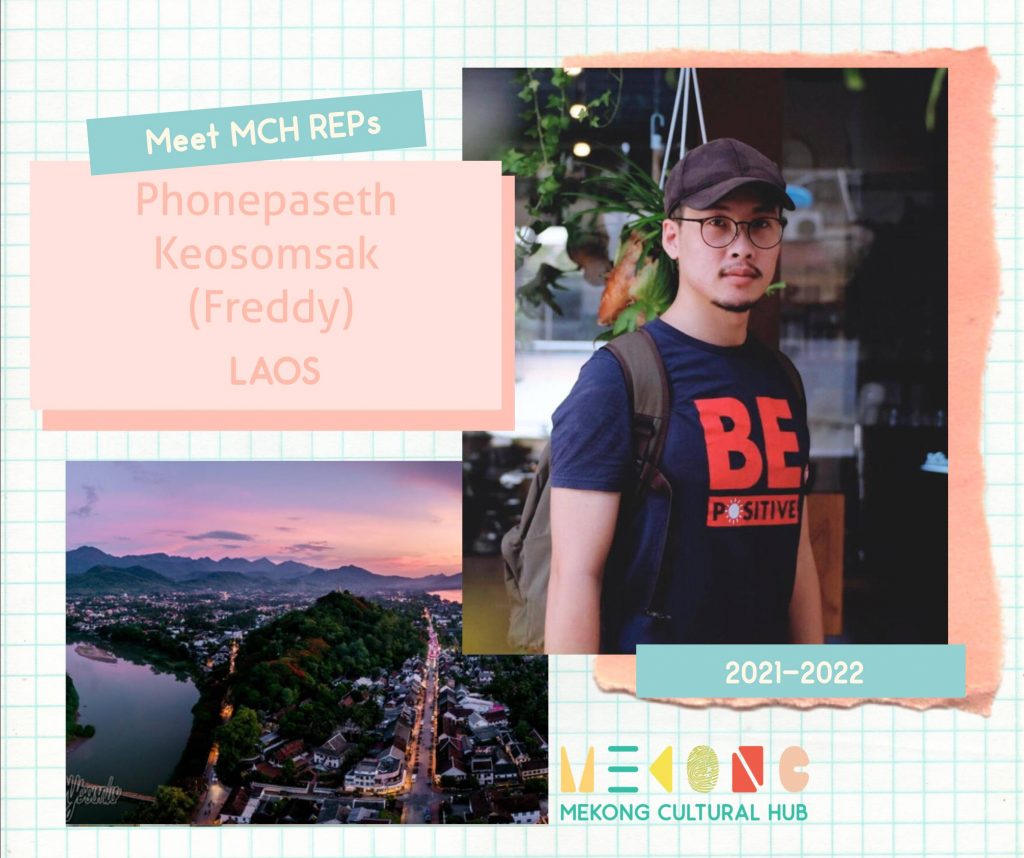
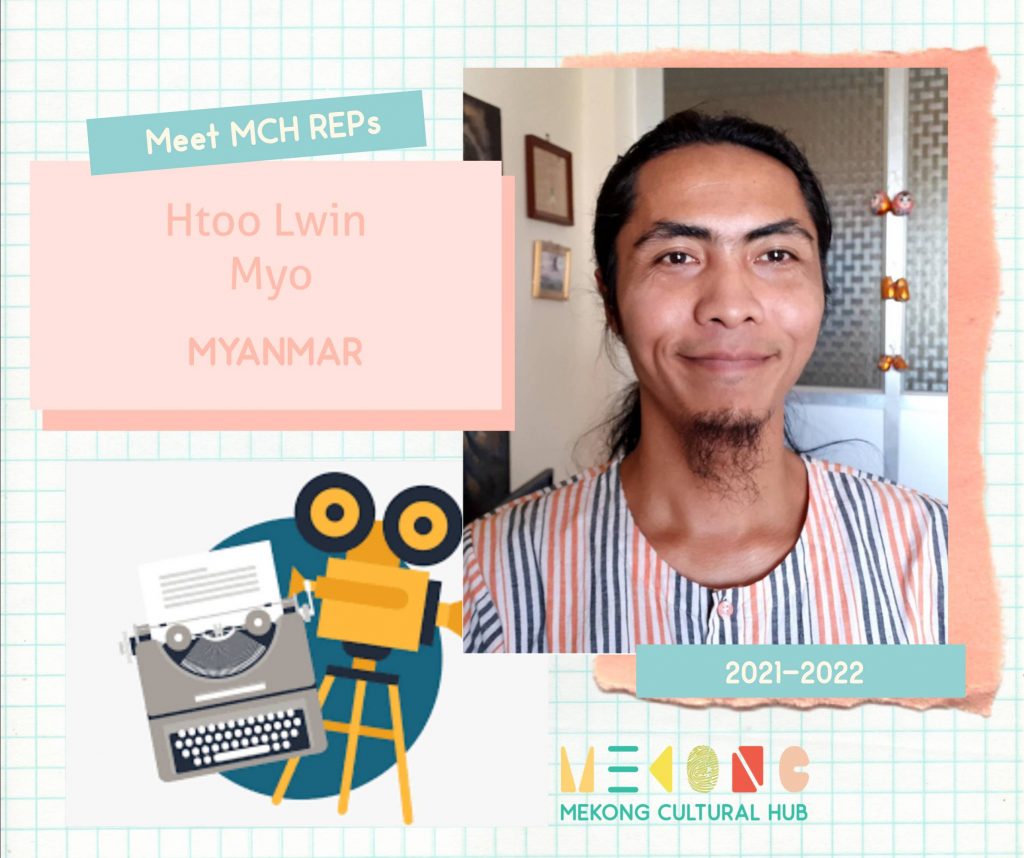
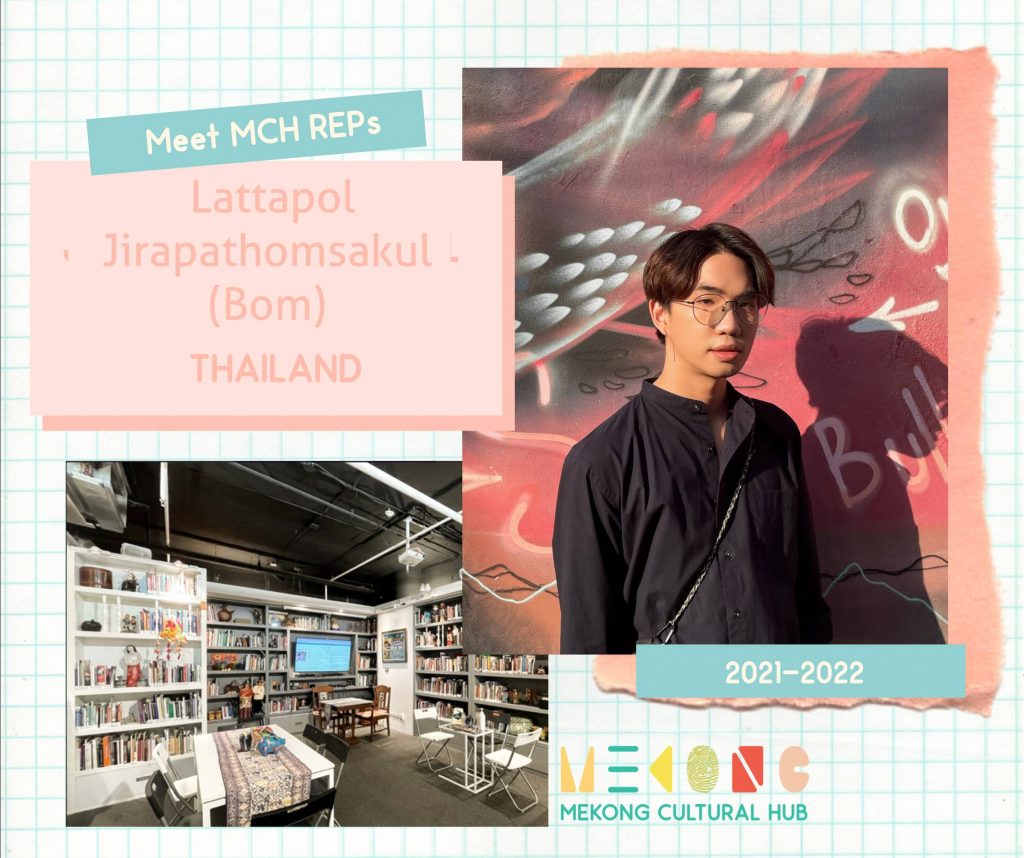
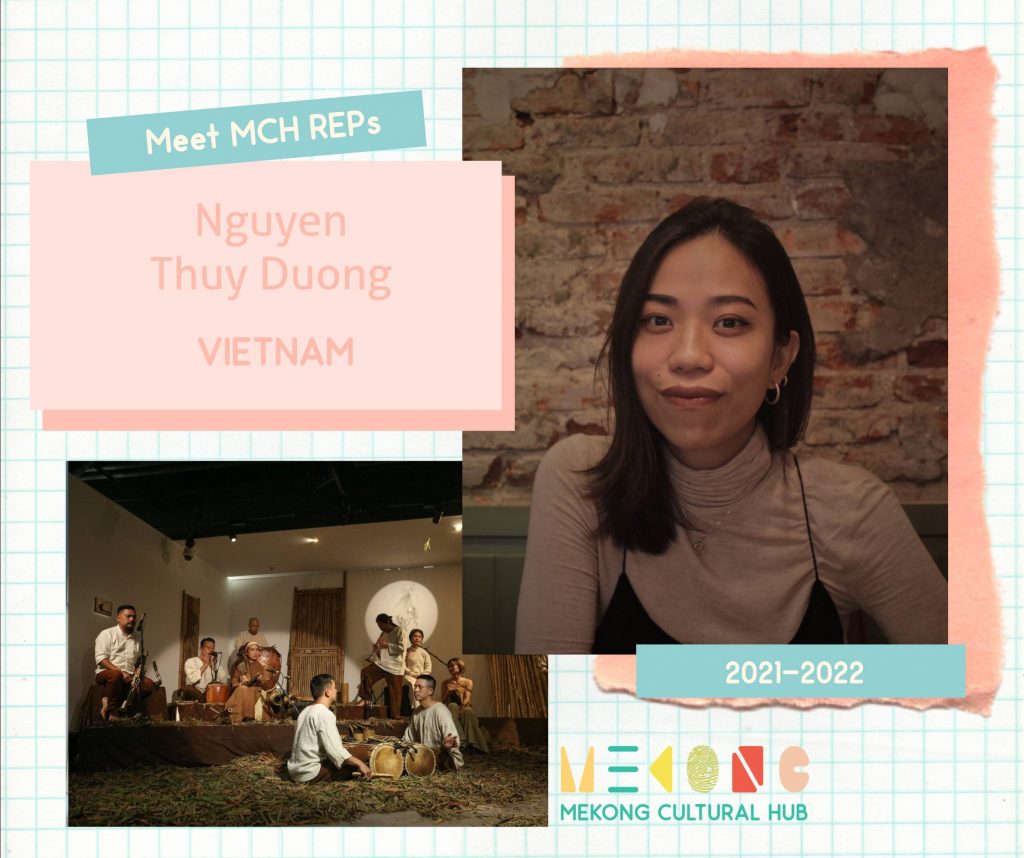
Regional Representatives (REPs) program is initiated by MCH in 2019. This is the second cohort of the program. During two years working together, the REPs will give input, advice and direction to MCH as we develop our programs and services, as well as act as a two-way promoter of opportunities between their local arts community and the regional network (which can be via MCH but also beyond). One of our goals is to better share information about existing opportunities, so that people from MCH countries have a chance to participate. But what we also want to see is people from MCH countries opening up opportunities to each other – that could be inviting artists to participate in a project, or even just sharing that their local community is organizing a program. All of these activities are a great way for neighbours to know more case studies about interesting projects and programs going on in the local area. It can inspire people to do something similar or to create connections and projects.
Meet all MCH REPs here